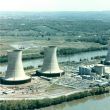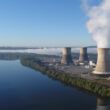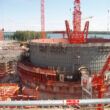Winning acceptance for nuclear power: Strategies must vary
By Augustin Simo, June 9, 2016
I plead guilty to my roundtable colleague Steven Starr's charge of seeing no need to eliminate nuclear power. Starr has written that Sonja Schmid, Manpreet Sethi, and I "may suggest new policies or technological fixes for the nuclear industry, but will not call for the industry's abolition." Quite right—I don't call for abolition of an industry that can drastically improve electricity supply in developing countries, where many millions are doomed to poverty if the energy needed for industrialization remains unavailable.
Nations that embark on nuclear power programs generally have strong reasons for doing so—including a lack of good alternatives for meeting electricity needs. Reasons can also include confidence in the safety of existing nuclear reactors and confidence that yet safer reactors will be available soon. In most cases, when publics understand the underlying reasons for pursuing nuclear power, they will support policy makers' decisions. That's why it's so important for the public to understand ongoing efforts toward improving reactor safety; the safety progress achieved since Chernobyl; and the steps taken since Fukushima to avoid a similar disaster in the future.
But nations display widely diverging levels of both education and technological advancement, so strategies for communicating with the public about nuclear power will differ from country to country. In nations with well-established nuclear sectors, for example, the nuclear industry provides jobs that people aren't eager to lose. Employees, if there are enough of them, can explain the technology's benefits to others within their social environments and make a big difference in public acceptance. In less developed countries, the situation may be quite different. A certain level of education is required to understand nuclear technology and safety features, so public communication in countries with less educated populations—this would include many nations on my home continent of Africa—should focus on local energy resources and their inability to provide sufficient electricity for industrialization. If the public realizes that industrialization cannot move forward without nuclear energy, people will support nuclear power even though an accident could happen—in the same way that, even though plane crashes aren't completely avoidable, people travel by air because only airplanes can provide quick transportation between continents.
Nations that pursue nuclear power in order to achieve development goals should share their decision making processes with other countries in similar situations. Meanwhile, nuclear regulatory bodies must be transparent in their interactions with the public. These agencies are the interface between the nuclear industry and the public. They must consistently demonstrate their independence and their capacity to regulate nuclear power appropriately.
Even if some countries pull back from nuclear power, as Germany is doing, the number of nations operating nuclear power sectors is likely to grow. So is the total number of reactors in operation. This is simply because so many countries view nuclear energy as a reliable, necessary component of their future electricity mix.
Topics: Nuclear Energy
Share: [addthis tool="addthis_inline_share_toolbox"]














